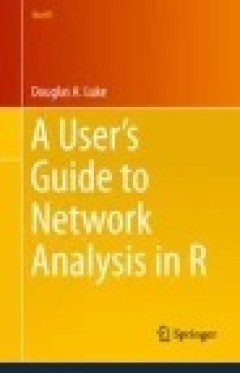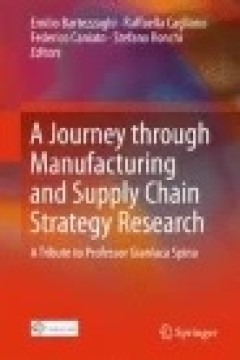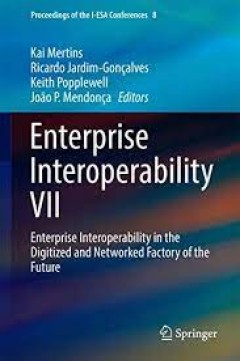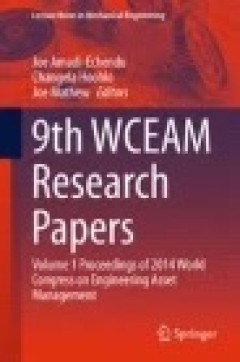Filter by

A User’s Guide to Network Analysis in R
Presenting a comprehensive resource for the mastery of network analysis in R, the goal of Network Analysis with R is to introduce modern network analysis techniques in R to social, physical, and health scientists. The mathematical foundations of network analysis are emphasized in an accessible way and readers are guided through the basic steps of network studies: network conceptualization, data…
- Edition
- Ed. 1
- ISBN/ISSN
- 978-3-319-23883-8
- Collation
- XII, 238
- Series Title
- Use R!
- Call Number
- 519.5 LUK u

A Thermochemical Heat Storage System for Households: Combined Investigations …
The book offers a comprehensive report on the design and optimization of a thermochemical heat storage system for use in buildings. It combines theoretical and experimental work, with a special emphasis on model-based methods. It describes the numerical modeling of the heat exchanger, which allows recovery of about two thirds of the waste heat from both solar and thermal energy. The book also p…
- Edition
- Ed. 1
- ISBN/ISSN
- 978-3-319-41228-3
- Collation
- XXIII, 202
- Series Title
- Springer Theses
- Call Number
- 541.36 LEL t

Environmental Microbial Biotechnology
This book provides a timely review of strategies for coping with polluted ecosystems by employing bacteria, fungi and algae. It presents the vast variety of microbial technologies currently applied in the bioremediation of a variety of anthropogenic toxic chemicals, mining and industrial wastes and other pollutants. Topics covered include: microbe-mineral interactions, biosensors in environm…
- Edition
- -
- ISBN/ISSN
- 978-3-319-19018-1
- Collation
- 36 b/w illustrations, 5 illustrations in colour
- Series Title
- -
- Call Number
- -

Environmental Implications of Recycling and Recycled Products
This book includes details on the environmental implications of recycling, modeling of recycling, processing of recycled materials, recycling potential of materials, characterisation of recycled materials, reverse logistics, case studies of recycling various materials etc.
- Edition
- -
- ISBN/ISSN
- 978-981-287-643-0
- Collation
- 48 b/w illustrations
- Series Title
- -
- Call Number
- -

A Modern Course in Aeroelasticity: Fifth Revised and Enlarged Edition
This book covers the basics of aeroelasticity or the dynamics of fluid-structure interaction. While the field began in response to the rapid development of aviation, it has now expanded into many branches of engineering and scientific disciplines and treat physical phenomena from aerospace engineering, bioengineering, civil engineering, and mechanical engineering in addition to drawing the atte…
- Edition
- Ed. 1
- ISBN/ISSN
- 978-3-319-09453-3
- Collation
- -
- Series Title
- Solid Mechanics and Its Applications
- Call Number
- 520 DOW m

A Journey through Manufacturing and Supply Chain Strategy Research: A Tribute…
This book is intended as a tribute to Gianluca Spina, the influential and inspiring Professor of Business Management & Organization and Supply Chain Management at the School of Management of Politecnico di Milano, who very sadly passed away early in 2015. It brings together seven of his most important papers, published in renowned international journals, and supplements these papers with insigh…
- Edition
- Ed. 1
- ISBN/ISSN
- 978-3-319-31104-3
- Collation
- -
- Series Title
- -
- Call Number
- 658 JOU j

Storage Policies and Maintenance Support Strategies in Warehousing Systems
This book studies storage policies in warehousing systems and maintenance-support strategies for critical operational systems in warehouses, which are the most important issues affecting operational efficiency of warehousing systems. It expands on the theory of class-based storage by considering a finite number of items in store, and also introduces the maintenance-support strategy founded on p…
- Edition
- -
- ISBN/ISSN
- 978-981-10-1448-2
- Collation
- XXIII, 104
- Series Title
- -
- Call Number
- -

Enterprise Interoperability VII Enterprise Interoperability in the Digitized…
A concise reference to the state of the art in systems interoperability, Enterprise Interoperability VII will be of great value to engineers and computer scientists working in manufacturing and other process industries and to software engineers and electronic and manufacturing engineers working in the academic environment. Furthermore, it shows how knowledge of the meaning within information an…
- Edition
- -
- ISBN/ISSN
- 978-3-319-30957-6
- Collation
- 17 b/w illustrations, 87 illustrations in colour
- Series Title
- -
- Call Number
- -

Enhancing Synergies in a Collaborative Environment
This volume contains a selection of the best papers presented at the 8th International Conference on Industrial Engineering and Industrial Management, XX International Conference on Industrial Engineering and Operations Management, and International IIE Conference 2014, hosted by ADINGOR, ABEPRO and the IIE, whose mission is to promote links between researchers and practitioners from different…
- Edition
- -
- ISBN/ISSN
- 978-3-319-14078-0
- Collation
- 71 b/w illustrations
- Series Title
- -
- Call Number
- -

9th WCEAM Research Papers: Volume 1 Proceedings of 2014 World Congress on Eng…
Engineering asset management encompasses all types of engineered assets including built environment, infrastructure, plant, equipment, hardware systems and components. Following the release of ISO 5500x set of standards, the 9th WCEAM addresses the hugely important issue of what constitutes the body of knowledge in Engineering Asset Management. Topics discussed by Congress delegates are grouped…
- Edition
- -
- ISBN/ISSN
- 978-3-319-15536-4
- Collation
- -
- Series Title
- Lecture Notes in Mechanical Engineering
- Call Number
- 658 NIN n
 Computer Science, Information & General Works
Computer Science, Information & General Works  Philosophy & Psychology
Philosophy & Psychology  Religion
Religion  Social Sciences
Social Sciences  Language
Language  Pure Science
Pure Science  Applied Sciences
Applied Sciences  Art & Recreation
Art & Recreation  Literature
Literature  History & Geography
History & Geography